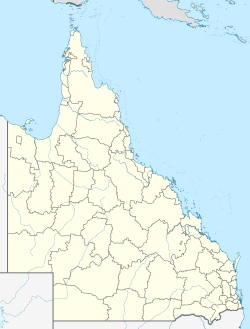This article needs additional citations for verification .(October 2013) |
| Cape Hillsborough National Park | |
|---|---|
 View across the beach front and bay at Cape Hillsborough National Park | |
| Location | Queensland |
| Nearest city | Mackay |
| Coordinates | 20°53′56″S148°59′37″E / 20.89889°S 148.99361°E |
| Area | 10.22 km2 (3.95 sq mi) |
| Established | 1985 |
| Governing body | Queensland Parks and Wildlife Service |
| Website | http://www.nprsr.qld.gov.au/parks/cape-hillsborough/index.html |
Cape Hillsborough is a national park in Mackay Region, Queensland, Australia. [1]
